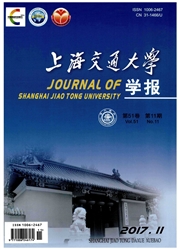

 中文摘要:
中文摘要:
研究了突发事件环境下制造商的供应应急管理策略问题.以单源采购策略为基准,分析了风险双源采购和混合双源采购2种不同应急策略防范突发事件导致的供应中断风险的有效性,比较了不同双源采购策略下制造商的最优订货和期望利润,分析了制造商对供应应急策略选择的影响因素.研究表明,双源采购策略在防范供应中断风险方面优于单源采购,制造商在单源采购与混合双源采购情形下的总订货量相等,但小于风险双源采购情形.混合双源采购时,随着风险供应商中断概率的增加,尽管要承担更高的采购成本,制造商仍将增加对可靠供应商的使用.
 英文摘要:
英文摘要:
The problem about manufacturer's supply emergency management strategy under emergencies was studied. Based on single-source, the effects of two different strategies including risky dual-source and mixed dual-source on responding to supply disruption risk were analyzed. The optimal ordering decision and expected profit of the manufacturer in two different procurement strategies were compared, and the factors that have the impact on the manufacturer's choice of emergency strategy were analyzed. Finally, some numerical examples were used to demonstrate the impact of supply disruption probability on the procurement decision and expected profit of the manufacturer. It is shown that dual-source strategy is better than single-source in the prevention of the risk of supply disruptions. The total ordered quantity by the manufacturer in mixed dual-source is equal to that of single-source, but less than that of risky dual-source. In the case of mixed dual-source strategy, the manufacturer will increase the use of reliable supplier as the disruption probability increases, even though bear a higher purchase cost.
 同期刊论文项目
同期刊论文项目
 同项目期刊论文
同项目期刊论文
 New parametric prioritization methods for an analytical hierarchy process based on a pairwise compar
New parametric prioritization methods for an analytical hierarchy process based on a pairwise compar 期刊信息
期刊信息
